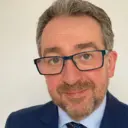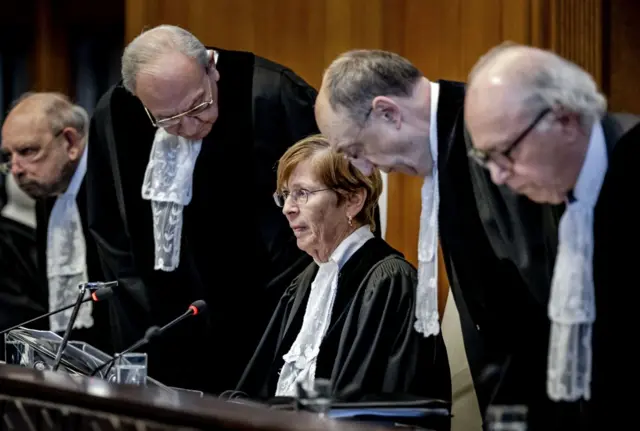Humanitarian situation in Rafah 'disastrous', court hearspublished at 14:15 BST 24 May 2024
The current president of the court, Judge Nawaf Salam, is leading today's hearing.
He's currently explaining the background to the case. He says the court must determine first whether there's been a change in the situation since the court's order of 28 March this year.
He says the court has observed "with regret the catastrophic living conditions of people in the Gaza strip has deteriorated further", especially prolonged and widespread deprivation of food.

